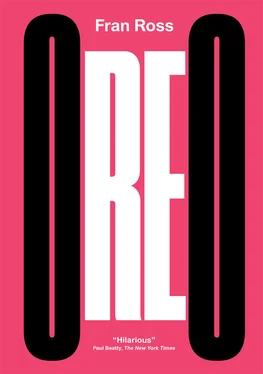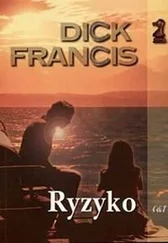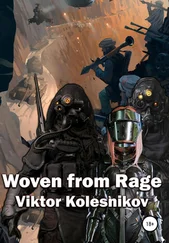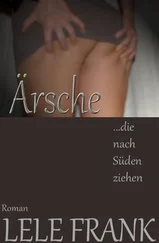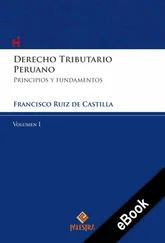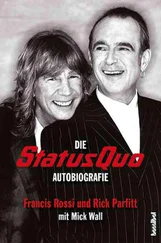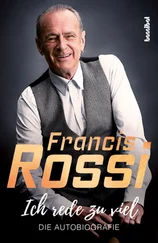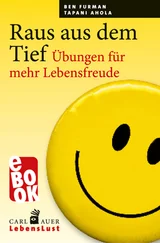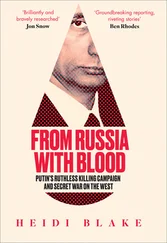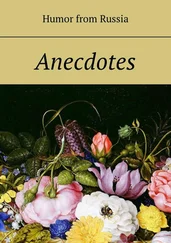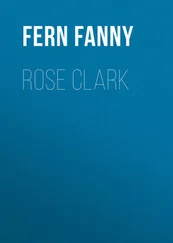“The b.o. and the dandruff — my father,” said Oreo.
“No, the woman.” Helen explained that Oreo’s father was now the king of the voice-over actors. He had found his niche after being in as many flop stage shows as Oreo now had years, sixteen and a half. Samuel’s combined run in the shows was sixteen days and a half-curtain — one play had closed before the first-act curtain was completely up.
“Your father has recently remarried,” Helen went on. “A Georgia peach, I hear.”
“Any reason why he never visited me and Jimmie C. or bothered to drop us a line or even acknowledge our existence?” asked Oreo.
“Of course there’s a reason.”
“What?”
“He’s a shmuck .”
That made sense to Oreo.
“Also, he wants his father’s gelt . Jacob isn’t about to leave him any bread if all Sam can show for it is shvartze children. You expected different, noch ?” Helen sighed. “In any case, baby, I came home this trip with a special purpose. It is time you undertook to learn the secret of your birth. I thought that you would not be ready until you were at least eighteen, but from what I have seen and heard, you are ready now. When your father and I were about to split up, he gave me this piece of paper, which I have carried with me on all my travels. He said that when I thought you were old enough to decipher the clues written here, he would know it was time for him to tell you what you have a right to know. It is not for me to tell you this secret. It is for Samuel alone. He’s still in New York, but I don’t have his address. If he’s such a big deal, he should be easy enough to find.” She handed Oreo the paper, which had turned brown from years of Helen’s spilling coffee on it.
The handwriting was intelligible in spite of the coffee stains. The meaning of the first item on the list was not so clear. “It says here: ‘Sword and sandals.’ What about it? Buy the sword and sandals? Find the sword and sandals? Stuff the sword and sandals? What?”
“I can help you with that one,” Helen said, “but all that other jazz is a whole ’nother thing. You’re going to have to figure that out by yourself. Come with me.” She went out into the back yard, Oreo following behind her.
Helen pointed to a huge rock in the northeast corner of the yard. “Can you lift that?”
Without a word, Oreo moved the boulder with one hand. It was Silly Putty that Jimmie C. had been saving for years.
“Tell me what’s under it,” Helen said.
“Nothing.”
“Oh, yeah, I remember now. I decided that was a tsedrayt place to put them. They’re in the house.”
Oreo followed her back inside. Helen went upstairs to Oreo’s room and straight to the third floorboard from the window. She started to bend over, then said, “Technically, you’re supposed to do this.” She showed Oreo a place where she could get her fingers under the board.
Oreo pried it up and took out what had been hidden underneath: a mezuzah on a thin chain and a pair of bed socks. “This he calls sword and sandals?”
“Hand them to me,” Helen said. They sat on the bed to look at the uncacheables. The mezuzah and chain had turned green. “Cheapskate. He told me they were solid gold.” Around the mezuzah was a piece of paper held in place by a rubber band. Helen rolled the rubber band off and handed the paper to Oreo.
Oreo read it aloud: “‘For the word of God is quick, and powerful, and sharper than any two-edged sword… (Hebrews 4:12).’”
“ Golem ,” said Helen, addressing Samuel, “that’s New Testament!” She gave Oreo the bed socks, saying, “Reach in.”
In the left bed sock was a ribbon of paper that read: “So you shouldn’t catch a chill.” Oreo too was moved to address her absentee father. “You’re so thoughtful. Poppa,” she said curling her lip. “If only I’m lucky enough to find you after all these years, I’ll give you such a zetz !”
Oreo’s good-byes to her tutors
Milton the milkman came up on the porch and said to Oreo, “I hear you’re leaving us to go find your father. Well, good luck to you. Funny thing about trips. You ever notice that if you meet somebody where they’re not supposed to be, in a foreign country, say, or another city, you’re happier to see them than if you bumped into them every now and then where they were supposed to be? I mean, take me, for instance. You see me almost every day and you’re glad to see me, but we’re just acquaintances, right? You couldn’t call us friends. But if you saw me in Cincinnati, we’d act like we were long lost buddies. And if we met in France — why, there’d be no separating us. Then we’d meet again in Philly and we’d be back to being just acquaintances again, right? Now, before you go, I’d like to tell you my theory of divorce, based on the experience of a friend of mine. Now, this friend of mine — let’s call him Stan — and his wife — let’s call her Alice — had a big problem. She preferred a night bath before sex, he liked a morning shower after sex. What with one thing and another, one of them was always too clean or too dirty for the other one. So they rarely got together, so they got a divorce. Now, my theory is that the divorce rate could be reduced by ninety percent if, before marriage, couples would honestly discuss, one, the time of day they like to have sex and, two, the time of day they like to take baths and/or showers. A lot of heartache could be avoided later if they did this, because you can tell a lot about a person’s character from these two things. Well, goodbye, kid. It’s been a pleasure serving you all these years. Take care, and remember to drink at least a quart of milk a day.”
“Good-bye, Milton.”
Douglas Floors interrupted a crucial discussion of the Sino-Soviet War on Oreo’s last day with him to inveigh against Central Park. “It is not quite so bad as Fairmount Park, of course, being smaller, but it is bad enough. The foul Sheep Meadow, the treacherous Great Lawn, and — I actually get a frisson every time I think of it — the Ramble, where benighted creatures actually go to watch birds .” He shuddered behind his dark glasses and turned his chair more directly to the wall, the better to avoid seeing Louise’s bare arm as she passed through the room. Her vaccination scar reminded him of a chrysanthemum. “I contribute to an enlightened East Coast group determined to pave all the parks. We’d like to start with Central. Our research indicates we have the best chance there. Of course, there are the lunatic conservation groups to contend with, but they will soon be neutralized by hay fever, poison ivy, ticks, and all the other little goodies their beloved Mother Nature inflicts on them whenever they go a-Maying.” He snickered with nonnatural satisfaction.
“Remember,” he said as he was leaving, “look out for rock outcroppings. Manhattan is full of schist.”
And so are you, thought Oreo, misunderstanding him.
“Good-bye, Oreo.”
“Good-bye, Doug.”
Professor Lindau, after all his years of giving blood, was now taking. He went daily for a transfusion of the blood he had donated over the last decade, convinced by Milton the milkman that getting back his callow plasma, his jejune erythrocytes, his puerile leukocytes, his tender platelets would make him young again. Oreo believed that his conflations with his latest wedge were doing more for his rejuvenation than any old stale blood.
For her last assignment, the professor had given her a standard treatise in the field of economic agronomy upon which she was to model an essay on the same subject. She read the first and last words of the treatise, titled Lying Fallow, or What You Should Know About Federal Subsidies , and started and ended her essay with similar words. In Lying Fallow , the first word was snow and the last word was potatoes . In her book-length essay (Secretaries of Agriculture I Have Known, or God: The First Economic Agronomist) , Oreo experimented with monsoon and broccoli as her first and last words, but decided they were too exotic, and, what is more, monsoon had too many syllables. Already she had strayed from the obvious pattern Fallow ’s author had established with his forceful yet sensitive first and last words. After an evening with Roget, Oreo decided that her first word would be rain and her last word rice. She was more than willing to sacrifice syllables (her two to Fallow ’s four) for alliteration. She quickly filled in the middle section of her essay, using the same technique. What she sacrificed in cogency, she gained in mechanicality (her serendipitous assembly-line gobbledygook against Fallow ’s numbing agroeconomic clarity). Thus a typical sentence in Fallow : “Wheat farm B showed a declining profit-loss ratio during the harvest season,” became in Oreo’s manuscript: “Oat ranch wasp played the drooping excess-death proportion while a crop pepper.” The professor was amused by Oreo’s little farewell drollery, which ran to more than six hundred pages, single-spaced.
Читать дальше
